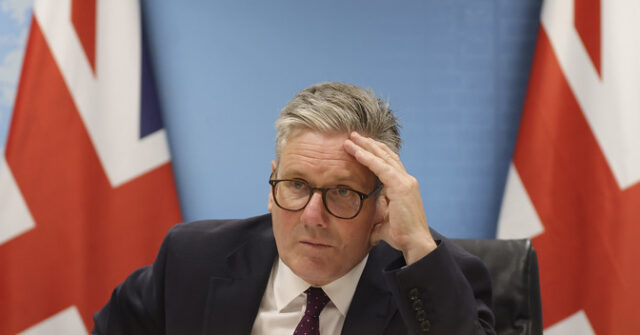On the first anniversary of the tragic October 7th attacks in Israel, the British government reiterated its stance on the ongoing conflict in the Middle East, emphasizing the need for a ceasefire. UK Prime Minister Sir Keir Starmer publicly expressed his condolences to the people of Israel, describing the date as “the darkest day in Jewish history since the Holocaust.” Starmer’s sentiments highlighted the enduring collective grief experienced in Israel over the events that unfolded a year prior. He committed to prioritizing the safe return of individuals still in captivity and affirmed his unequivocal support for the Jewish community amid a challenging backdrop of international tensions.
While voicing solidarity with Israel, Starmer also underscored the British government’s foreign policy directive, advocating for an immediate halt to hostilities and a ceasefire. In his statement, he acknowledged the tremendous humanitarian consequences of the ongoing conflict for civilians in the region. The Prime Minister called for an end to fighting not just in Gaza but also in Lebanon, as well as the immediate removal of restrictions on humanitarian aid into Gaza. His appeal framed the urgency of the situation, highlighting the need for careful consideration of civilian casualties while urging an approach that centers on humanitarian rather than military responses.
In a broader context, Starmer recognized the multicultural fabric of British society, noting that many citizens have family ties to the Middle East. He metaphorically warned of the conflict’s potential to spread instability akin to fire, suggesting that tensions in the Middle East could reverberate within the UK. This awareness led him to invoke a commitment to safeguarding societal values, stating that any act of violence directed at a minority group, be it Jewish or Muslim, threatens the foundational principles of tolerance and respect that define the nation. He pledged that the government would not tolerate such acts, reinforcing the importance of communal harmony amidst diversity.
Starmer’s op-ed emphasized the necessity of political rather than military resolutions, echoing calls for a “two-state solution” as a framework for lasting peace. He argued that achieving a ceasefire in Gaza could alleviate regional tensions and urged all parties involved to exercise restraint. While acknowledging Iran’s role in supporting terrorism and causing instability in the Middle East, he cautioned against direct military confrontations between Iran and Israel, warning that such conflicts could lead to devastating outcomes for the broader region and the world.
However, calls for a ceasefire from Western leaders often face skepticism from Israel, which contends that it must take decisive action to protect its citizens from ongoing threats. Responses from Israeli officials illustrated the challenges in balancing defensive measures while addressing international calls for peace. An Israeli Defense Forces spokesman articulated the frustration felt within Israel, pointing to a year of escalating attacks from Hezbollah that went largely unaddressed by the international community. This sentiment underscores a belief in Israel that the primary focus of the global community should be pressuring militant groups like Hezbollah rather than calling for ceasefires unilateral to Israel’s circumstances.
In summary, the anniversary of the October 7th attacks serves as a poignant reminder of the complexities and sensitivities surrounding the Israeli-Palestinian conflict. The British government’s calls for ceasefire highlight the ongoing humanitarian crisis and the implications of the conflict for multicultural societies like the UK. Starmer’s expressions of solidarity with Israel and advocacy for a pathway towards peace reflect a balancing act between humanitarian concerns and geopolitical realities. As tensions persist and differing narratives challenge mutual understanding, the need for comprehensive dialogue and commitment to peaceful resolutions remains imperative for all involved parties.

